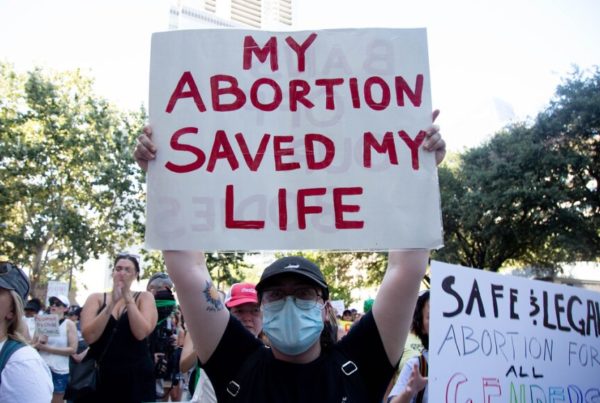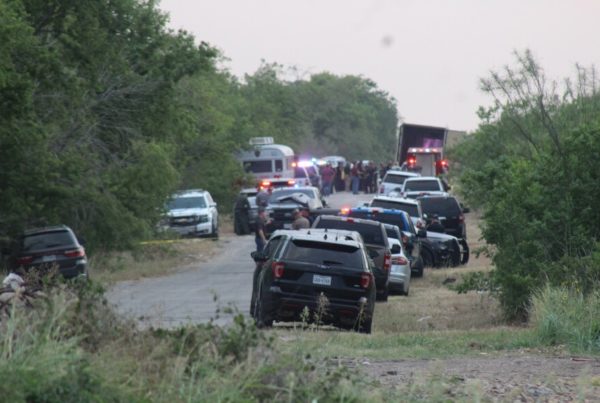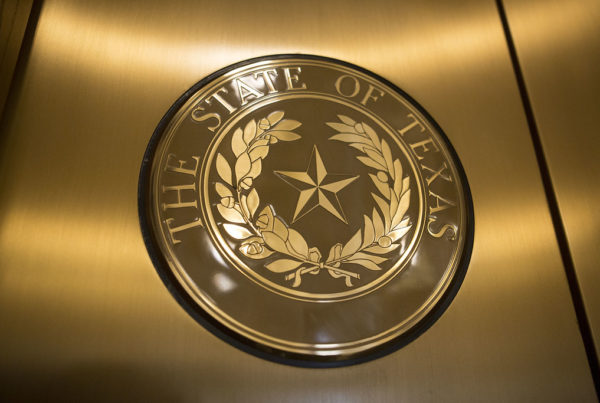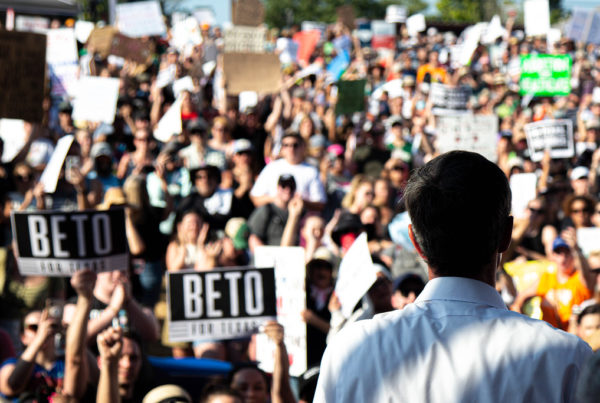From period trackers to Google searches, there’s increasing worry among abortion-rights advocates about how digital footprints can be used to build a case against those seeking abortion care in states where it is outlawed.
Indeed, the implications for both medical and online privacy are far-reaching, according to the Electronic Frontier Foundation, a nonprofit focusing on digital rights.
Corynne McSherry is the legal director for the Electronic Frontier Foundation. Listen to the interview above or read the transcript below.
This transcript has been edited lightly for clarity:
Texas Standard: Roe versus Wade was first and foremost a case about a right to privacy as articulated by the court. So in the wake of last week’s Dobbs versus Jackson ruling overturning Roe. What do you see as the implications for medical privacy?
I think the concern that I have is that the world is pretty dramatically changed since 1973 in terms of how people engage, and even access all kinds of medical care. There really isn’t a clear distinction between medical privacy and online privacy with respect to a lot of what we do. And once you start using technology to get access to medical information, you leave a digital footprint that can be used against you.
Well, we’re already using technology to access medical records, share medical records. We’re signing documents online. Of course, the pandemic saw a lot of people interacting with their doctors through Zoom calls or something that’s specifically tailored to the health care industry. Ultimately, who does have access to an individual’s medical records?
From period trackers to Google searches, there’s increasing worry among abortion rights advocates about how digital footprints can be used to build a case against those seeking abortion care in states where it is outlawed.
Indeed, the implications for both medical and online privacy are far -eaching, according to the Electronic Frontier Foundation, a nonprofit focusing on digital rights.
Corynne McSherry: Well, it kind of depends. Certainly your health care workers will have access to that information. And sometimes health care workers historically have felt that they had an obligation, if they had a suspicion that a fetus was being harmed, that they should report that information to law enforcement or to child protective services, which then will reach out to law enforcement.
What about when it comes to abortion care? Do laws like HIPAA – the Health Information Portability and Protection Act – provide protection when it comes to information about someone seeking abortion care?
There are various kinds of protections and basic sort of patient-doctor confidentiality ethics that do come into play. The trick is that what we have seen over the past decade, already before Dobbs, was that sometimes health care workers will feel compelled to make reports to child protective services if they think that a fetus is in danger or is being harmed. And again, the rules can vary depending on where you are.
I want to move on to the personal digital privacy aspect of this. There’s a whole lot of concern about how tech might be used against those seeking abortions, for example. We’ve seen a lot of advice telling women to delete their period tracker apps even if they aren’t currently seeking an abortion. Is that an overreaction or what do you see this meaning for privacy online? k
I think that is a thing that a woman could do. But I think actually the focus on period tracking apps is letting a lot of other surveillance sort of be ignored. Your period tracker app is just the tip of the iceberg. Really, what you should be worried about are things like your search history, which is being collected by Google or somebody else. You should be worried about all the different ways in which many, many different companies work together to collect information about your location, what you do online, what information you’re seeking. We have now an entire digital surveillance apparatus set up, and all of that information is being collected by third parties over which you have very little control. There are things you can do to protect yourself, though.
Like what?
You can delete applications that are tracking your location – very important to do. You can check and make sure apps on your phone aren’t tracking your location in the first place. Many people don’t even realize that that is happening.
If you are searching for abortion information online, you can use private browsing so that those searches are not being collected by anybody, such as Google or Firefox or whichever other browser that you use. If you can, get access to what’s called a burner phone, which is just sort of a temporary phone that is not connected to all of your other accounts.
But the thing that’s really core to this that I find particularly frustrating is that it’s really not fair that it’s all on the individual person to do a whole bunch of elaborate things to protect their own privacy. What we really need are federal data privacy protections that actually, you know, protect everybody, not just people seeking abortion care, but everybody should have a right to privacy in their data. And unfortunately, we don’t have that right now.














